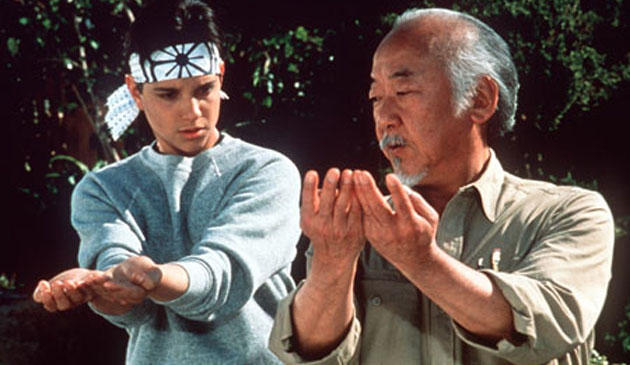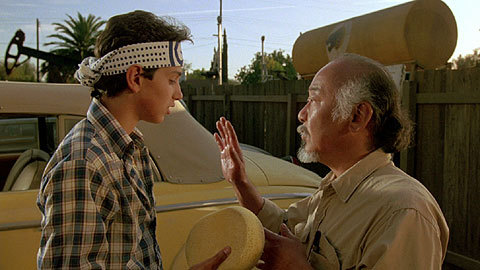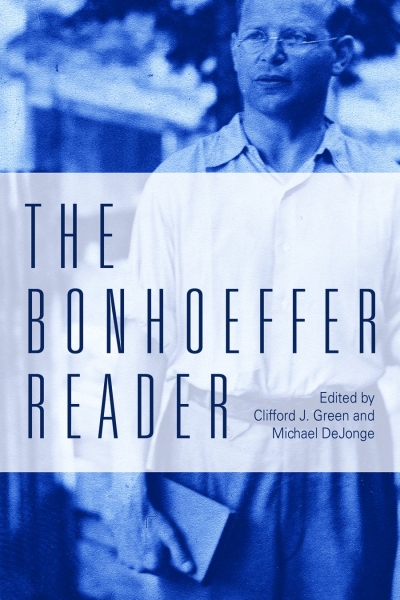My wife and I had an unexpected visit from a saint last night.
Ever since we moved into our house, our kitchen sink has been getting more and more clogged until it finally stopped draining at all last night. For the first time – but certainly not the last – we called a plumber to our house to come help us fix this clog that was embedded somewhere deep in our pipes. Our new friend Young came to help us.
As it turns out, Young lives in the condo’s right behind our new house. This gave us a great place to start our conversation. Young is a middle aged man who served in the Korean army, but has now been a plumber for eighteen years. He is married with four young kids.
As our conversation progressed, I began to ask him about his pastor and church. Young began to tell me what it was like for him to go to just one of the many Korean churches that populate our small suburban sliver called Centreville. In this area, Korean churches are like 7-11’s in most other cities – there is one on every corner. Young told me about how that was so hard for the Korean community because there are so many churches and none of them seem to want to work together. He described how every young Korean seminary graduate wants to come and plant the new “next big thing” in the Korean community, rather than build up churches there that already exist.
He continued to tell me how this creates a culture in the Korean community where each pastor becomes a salesman for their own church. He described one scenario of a young, fresh seminary graduate who was starting a new church showing up on his doorstep and handing out his business card.
“I don’t want your business card,” said Young. “But tell me, where did you graduate from school?”
Instantly the young seminary graduate lit up and got excited to tell Young about his educational credentials. He gloated in his prestigious degree from Westminster California, and how he previously had a degree from MIT. This green pastor was very proud.
By this point, Young knew who this man was. Before him was another young, prideful wanna-be pastor who didn’t understand the Church and was perfectly fine with stealing sheep from another flock to start his own thing. “Get out of my house and never come back,” he told the pastor. While blunt and possibly lacking in grace, that certainly got the point across.
Young left my house shortly thereafter. He never knew anything about my wife and I other than that we too were Christians who attend church regularly. He didn’t know that I have plans for vocational ministry, or that I am currently in seminary.
I tell this story for two reasons.
One, it is a clear example of how in the family of God we are all on the same footing. No one is better than any other or in a higher status. More knowledge or degrees do not qualify someone for always being the teacher instead of the student. The Church of Christ turns the categories of the world on its head! Only in the Church is it common to find a janitor teaching an Overland Park injury lawyer, a school teacher instructing a doctor, or a stay-at-home mom counseling a CEO. I’m reminded of Colossians 3:16, where all believers are commanded to teach and admonish one another. It doesn’t matter what your profession is or how much money you make; you have something to give and teach to your brothers and sisters in Christ. We are called to share the comfort and knowledge God has shown us with others.
Secondly, this conversation really stuck out to me as one of those bright-eyed seminary students Young mentioned in his story. From personal experience, I’ve noticed that we seminary students tend to place a lot of weight on our seminary credentials and training. We take pleasure and pride in what we learn in all of our various classes. We think that we have something within ourselves to offer people. When this happens, we begin to place confidence in ourselves rather than in the cross of Christ. Our churches begin to look a lot more like our personalities, rather than looking a lot like Jesus.
I’ve said this before, and I need to repeat it to myself often: at the end of the day, nobody really cares how much we know, what school we graduated from, what degree we have, or what classes we’ve taken. People want to know what we can give and show them. And what do we have to give? What we possess does not come in the form of fancy theological terms, understandings of church fathers and tradition, or new emerging ideas on critical linguistic studies. It does not come in the form of “5 points in improving your marriage” or our latest thoughts and speculations on a certain text. It does not come from loud music, flashy lights or big buildings. All we have to offer people is a 33-year-old naked Jewish man hanging on a Roman cross. That’s it. If your theology and seminary education does not give people this Man then it is useless, vain speculation. Don’t waste anybody else’s time with it.
This message of a crucified, suffering Savior is utter foolishness to the world, but to those of us who are being saved we know that it is the power of God. We know that it is the only hope that we have. That dear friends, as a saint equipped to minister with the gospel (which we all are in Christ), is all we have to give to each other. Glory to the crucified King!
Out of the great 1980’s movie era came what is widely regarded as one of the most iconic films in movie history, The Karate Kid. In this film, the protagonist Daniel-San is perpetually bullied and beat up by the Karate students of the Cobra Kai dojo until the wise sage and Karate master Mr. Miyagi steps in and saves him. Eventually, Mr. Miyagi reluctantly agrees to teach Daniel-San Karate in order to beat the Cobra Kai bullies in a local Karate tournament.
Unbeknownst to Daniel-San, Mr. Miyagi begins teaching him Karate through regular household chores; waxing Miyagi’s car, painting his house and fence, and sanding his wooden deck. Of course without the end result in mind, to Daniel-San this is nothing more than being an errand boy in a feeble attempt to earn Mr. Miyagi’s time so he’ll teach him real Karate. This only lasts for four days, until finally Daniel-San has had enough with the chores and furiously decides its time to go home.
“Daniel-San!” exclaims Mr. Miyagi. “Come here!”
As a martial artist myself, I love what follows in this scene between these two characters. Mr. Miyagi begins to unfold what his plan has been all along. “Sand the floor” is not simply a technique Daniel-San learns to make a deck look nice, but to block kicks coming at his midsection. “Paint the fence” is not only the proper technique for exterior remodeling, but for blocking high and low punches as well. “Wax on, wax off” is another way of saying, “Use correct technique or you’re going to get punched in the face.”
Daniel-San finally gets it; he’d been learning Karate all along.
Sometimes I feel like my attempts at learning theology are much like Daniel-San’s approach to learning karate. I don’t want to know application and wisdom, I just want to know facts and answers. My pride gets in the way and turns theology into an intellectual pursuit rather than worship. It is all too easy for me to turn my studies of the Scriptures into an attempt to tear down other peoples philosophies and worldviews, completely neglecting the fact that I’m supposed to be drawing closer to the holy and loving God of the entire universe. In haste, I determine that people who aren’t teaching me enough facts aren’t teaching me enough “theology.” After all, in order to be the best around you have to know more than everyone else, right?
Take for example when I started my Islam class a couple years ago. I went into the class wanting a five-point systematic discourse on how to tear apart Muslim apologists. Instead, I learned that if I don’t actually love people, I have no business engaging in evangelistic dialogue – regardless of how much I know.
Wax on, wax off. Paint the fence, Ben-San.
When I first became a Christian and the majesties of God were opened to me, I bought every apologetic resource I could find hoping to prove to my friends why I was right and they were wrong. I had no conception that a right understanding of God should only lead me to a correct worship of God.
Wax on, wax off. Paint the fence, Ben-San.
I think about how often I go into a sermon on Sunday simply looking for new nuggets of information and knowledge, rather than a desire to draw near to the throne of grace through the preaching of God’s Word. Instead of setting myself at the foot of the cross, seeking to have the Word of God pierce my heart, I elevate myself to a place where I feel worthy of picking apart good or bad facts.
Wax on, wax off. Paint the fence, Ben-San.
After every one of these examples, I had a moment where I realized that my original desires weren’t for real theology, but something entirely different. Every time my knowledge and pride puffs me up, like a crane kick to the face I get knocked down and realize I don’t know real theology at all.
The truth is, more often then not I act like one of the antagonist students from Cobra Kai than I do a protege of Mr. Miyagi. My goal is to show no mercy, sweeping the leg of my opponents and humiliating them at whatever cost. Oh Lord, shape my study of you to lead towards praise of you! It has been said that a right theology leads to proper doxology. May my life be evidenced not by how much I know, but by the magnitude of the God I worship. He must increase, but I must decrease.
Being the best around isn’t about how much you know, but instead is defined by being united to a compassionate and loving God through the sacrifice of Christ, as evidenced by your kindness and goodness towards other people. Being the best around means realizing that Christ is Lord over all, and that I am the least of these worthy to be called one of his own.
I’ve previously written on a book about Dietrich Bonhoeffer, a book that I was very delighted to read and recommend to readers of this blog.
Bonhoeffer is a figure from contemporary church history that I do not think it is possible to read “too much” of. He is delightfully quotable and thoroughly convicting; a man with much to say about the Christian life in reality of this side of the cross.
There are many books one could select from to encounter Bonhoeffer. Many people today discover Bonhoeffer through the popular biography by Eric Metaxas; others discover him after hearing Life Together or The Cost of Discipleship quoted by their pastor. If you want an introduction to Bonhoeffer as a preacher, you could read Isabel Best’s The Collected Sermons of Dietrich Bonhoeffer. Beyond those foundational texts, it is hard for the student or lay person to find another resource to continue their experience with Dietrich Bonhoeffer.
popular biography by Eric Metaxas; others discover him after hearing Life Together or The Cost of Discipleship quoted by their pastor. If you want an introduction to Bonhoeffer as a preacher, you could read Isabel Best’s The Collected Sermons of Dietrich Bonhoeffer. Beyond those foundational texts, it is hard for the student or lay person to find another resource to continue their experience with Dietrich Bonhoeffer.
This is why I was incredibly thrilled at the release of The Bonhoeffer Reader, edited by Clifford Green and Michael Dejonge and published by Fortress Press. Based on the recent and massive publication of the Dietrich Bonhoeffer Works English Edition (DBWE), The Bonhoeffer Reader is meant to serve the general reader or beginning student. This book provides a series of excerpts from Bonhoeffers life, from those written as a young student to texts published shortly after his death. These readings also cover a wide variety of genres, from academic texts to lecture notes and other short pieces. It is for this reason that The Bonhoeffer Reader is considered primarily a theological reader; it gives us depth and insight into the theological mind of Bonhoeffer not formerly available to a wide audience.
There are many features about this book that make it a great resource for lay-readers and students alike. First, the breadth of wisdom over a large variety of topics has been included for all readers. Bonhoeffers writings on Ethics, Ecumenism, the German Church, Christian life, and his University writings/lectures are all included. Secondly, the footnotes for this text have been largely stripped down in comparison to its DBWE counterpart, making them more readable for a wide audience. One of the greatest features of this text is that in its margins, the page numbers corresponding to the DBWE are included. This is a great feature to include for students who may read an excerpt in The Bonhoeffer Reader and then desire to continue reading the entire piece in the DBWE at a local library. I am also thrilled at any text that includes an index of Scripture references, which is readily available in the back of this book (as well as an index of names).
Each work included by Bonhoeffer includes a brief introduction and background included by the editors. These inclusions provide moments of history in Bonhoeffers life that really make the writings “pop” to the reader. An example of the impacts in this attention to detail is seen in the short work entitled Protestantism Without Reformation. The history provided tells the reader that this work was written shortly after Bonhoeffers return from his second visit to the United States at a time when he was seriously considering the differences between the American and German churches. This would be some time before his arrest that led to his eventual martyrdom. In this work he writes:
Throughout the history of the church, endurance and flight in times of persecution have been the two Christian possibilities, since the days of the apostles. Endurance to the point of last resistance may be commanded; flight may be permitted or perhaps even commanded. The flight of a Christian in times of persecution is not apostasy and disgrace as such, for God does not call every person to martyrdom. Not flight but denial is sin, although there may be a situation where flight is the same as denial or, conversely, where flight itself may be a part of martyrdom (pg. 577).
When I first read this, I was in awe of Bonhoeffers prophetic words on his own life. Could it be possible that even at this time Bonhoeffer could sense God calling him to death for his church?
Bonhoeffer is a man who has much to say to us today, and is someone we would be wise to invest and listen to. It is for this reason I would heartily and readily encourage The Bonhoeffer Reader to any general reader, student or pastor seeking to move beyond the biographical or introductory texts previously available to them. This is a resource I would recommend being available to any individual curious in the theology and works of Dietrich Bonhoeffer.



